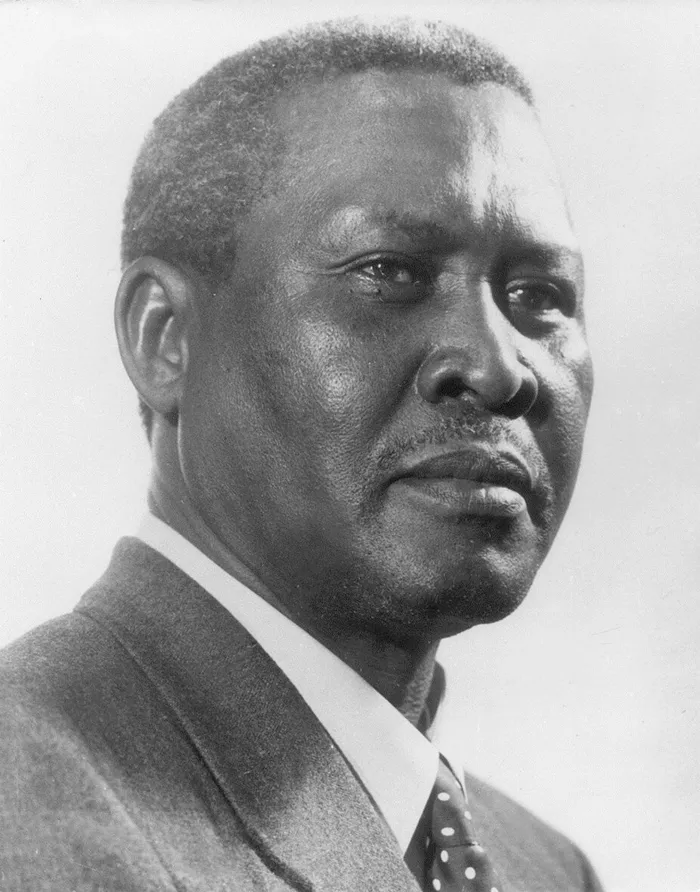Albert Luthuli's reinstatement as Inkosi of Umvoti Mission Reserve on the agenda in KwaZulu-Natal Legislature

A reopened inquest into Inkosi Albert Luthuli's death on July 21, 1967, is being held at the Pietermaritzburg High Court. Luthuli’s reinstatement as Inkosi of Umvoti Mission Reserve could be discussed at the next sitting of the KwaZulu-Natal Legislature.
Image: Independent Media Archives
Inkosi Albert Luthuli’s reinstatement as Inkosi of Umvoti Mission Reserve could be discussed at the next sitting of the KwaZulu-Natal Legislature.
A request from the Luthuli family for his reinstatement was tabled at the legislature by the MEC for Transport and Human Settlements, Siboniso Duma, on Thursday.
Chief Luthuli, Nelson Mandela, and other ANC leaders planned many actions, notably the Defiance Campaign of 1952, to demonstrate their opposition to apartheid legislation in existence at the time. He was deemed a terrorist by the then-government, and his appointment as chief was terminated.
After losing his title, he was subjected to a series of banning orders, which eventually limited his movements to Groutville, where he could only be in the company of one person at a time, except his immediate family members.
Despite the revocation of his title by the then-government, he was nevertheless referred to as Chief Luthuli by local and foreign populations alike.
The National Prosecuting Authority (NPA) re-opened the inquests into the deaths of Luthuli and Mlungisi Griffiths Mxenge. It was revealed in the original 1967 inquest that Luthuli walked on the Mvoti River railway bridge and was hit by an oncoming train moving at a speed of 40 km/h.
However, recent testimonies before the Pietermaritzburg High Court from a hospital staff member and people known to Luthuli painted a different picture.
Duma said that testimony given at an investigation into Luthuli’s death revealed that he was assassinated by the apartheid government.
Testimonies given in court indicate that Luthuli was physically assaulted and died of his injuries in Stanger Hospital. Still alive and semi-conscious, he was transported to the hospital with bruises on his arms and hands, a broken rib, and a gash on the back of his head.
The court also heard that an eyewitness was allegedly taken away by police a few days later to an unidentified police station to state what he saw, but he disappeared, and his family never saw him again.
"They feared him and worried about his influence. They described Luthuli as a terrorist and revoked his appointment as Inkosi. I also salute President Cyril Ramaphosa for his bold leadership and determination to ensure that the Luthuli family and the people of this country know the truth. I welcome the dedication and efficiency displayed by the National Prosecuting Authority in terms of exposing the perpetrators of this gruesome act," Duma said.
Luthuli was born in 1898. He rose to prominence in 1937, when the then-Department of Native Affairs nominated him as Chief of the Zulu people in Groutville. In 1944, he joined the African National Congress (ANC), ultimately becoming its president general. In 1960, Chief Luthuli received the renowned Nobel Peace Prize.
He continued to fight for equal rights for all races in South Africa through speeches and writings until his tragic death on July 21, 1967.
In 1981, Mxenge was returning home from his legal office in the Durban central business district when he was kidnapped, brutally murdered, and his body found on a sports field in Umlazi, south of Durban. Both inquests are under way in the Pietermaritzburg High Court.
zainul.dawood@inl.co.za
Related Topics:
